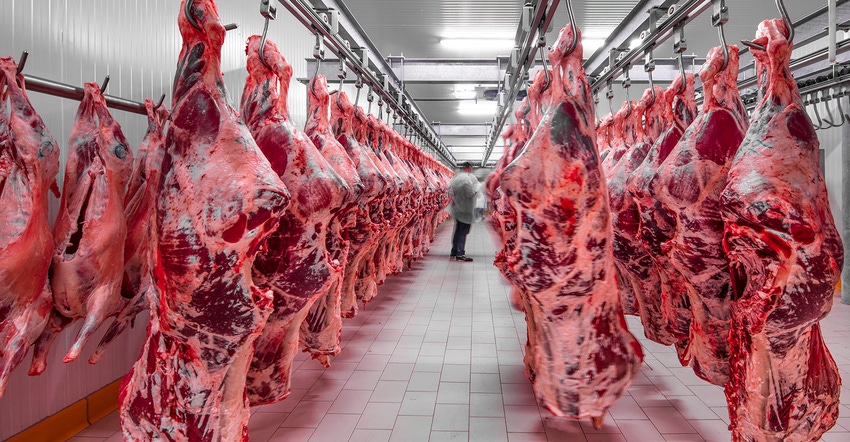Fewer workers means cheaper and less popular cuts going to rendering.

By Isis Almeida
JBS SA says its North American slaughter rates remain near normal even after the world’s largest meat packer sent home thousands of staff in response to a second wave of Covid-19 across the U.S.
The company’s North American unit is killing a similar number of animals at its plants in the U.S. and Canada, JBS USA Chief Executive Officer Andre Nogueira said in an interview Friday. The biggest impact of fewer workers is being felt in the final product, where some less popular cuts are going to rendering, while some meats aren’t being de-boned.
The meat industry is trying to avoid the type of disruptions that shut plants and left supermarket shelves empty after thousands of workers across North America caught the virus earlier this year. JBS has sent more than 5,000 of its most vulnerable employees home on paid leave.
“From an operational perspective, I’m less concerned than I was a month and a half ago,” Nogueira said. “We have hired more people, but we couldn’t offset” the employees who were sent home, he said.
The staff shortfall means cheaper and less popular cuts such as tongue are now going to rendering, Nogueira said. Rendering converts animal tissue into products like lard and tallow.
JBS USA is selling more in-bone hams than in the past and the company has also cut back on what it calls “super trimming,” or cuts where a large part of the fat has already been removed, making it easier for retailers to handle.
The American unit of Sao Paulo-based JBS has hired 6,000 workers in the U.S. in the past four months, but that hasn’t been enough to compensate for those who have left the company or are on paid leave, Nogueira said. It’s common for meat companies to have high absenteeism, but levels have increased in the pandemic.
The impact of fewer workers is more perceptible in cuts of pork and beef, while chicken hasn’t changed much, he said. Pilgrim’s Pride Corp., the second-largest U.S. chicken producer, is owned by JBS. Prioritizing slaughter will also help prevent a repeat of disruptions earlier in the year, when farmers were forced to euthanize animals, he said.
JBS has implemented a raft of safety measures since the pandemic roiled meat markets, carrying out more than 20,000 surveillance tests, on top of testing offered to workers with symptoms. That’s helping keep cases in check, Nogueira said.
“People know the illness better now, they know the symptoms,” he said, adding that employees now call the plant when they feel unwell and go to a separate area outside the facility to get tested.
JBS has also bought freezers in some locations and made them available to local governments should they want to store the vaccine, Nogueira said. There has been concern that some areas in rural America lack facilities to store the shots, which need to be kept in freezing temperatures.
© 2020 Bloomberg L.P.
About the Author(s)
You May Also Like



